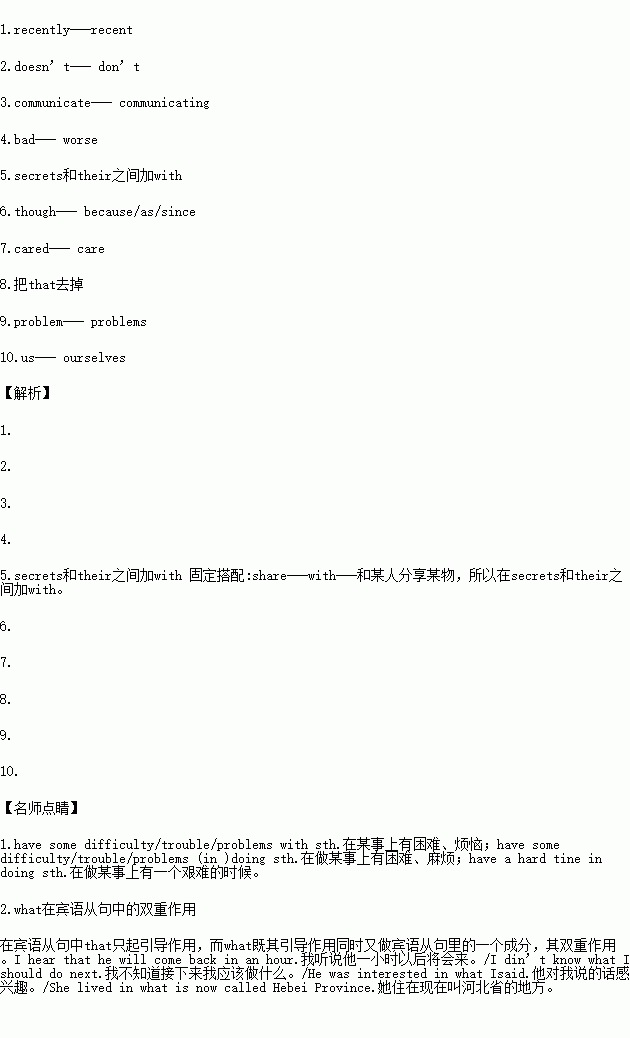��Ŀ����
���ĸĴ�
�ٶ�Ӣ�������ʦҪ��ͬ��֮�佻��������,��������ͬ��д���������ġ������й���10�����Դ���,ÿ���������������ÿ��������漰һ�����ʵ����ӡ�ɾ�����ġ�
���ӣ���ȱ�ʴ���һ��©�ӷ��ţ��ģ�����������д���üӵĴʡ�
ɾ�����ڴ��Ĵ��»�һ����,���ڸô�����д���ĺ�Ĵʡ�
ע�⣺1.ÿ���������ľ�����һ�ʣ�
2.ֻ������10��,���ߣ��ӵ�11���𣩲��Ʒ֡�
Do you often talk with your parents? A recently survey shows that nearly half of the high school students doesn��t like to talk with their parents. 43.3% of them have trouble communicate with their parents. What is bad, 82.8% of them don��t want to share their secrets their parents. Actually, it is important for us to communicate with our parents though they are the dearest people in our life, who cared for us all the time. By letting them know that what we think, we can get practical advice from them, which can help us to deal with many problem in life.
In this way, we can feel more confident about us and live happily.

